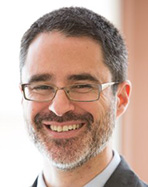 Dr. Simon Nicholson
Dr. Simon Nicholson
Following a talk entitled, “Climate Engineering: Coming Soon to a Planet Near You?” the Georgetown Journal of International Affairs sat down with Co-Director of the Forum for Climate Engineering Assessment Dr. Simon Nicholson to discuss the most recent developments in climate engineering research.
GJIA: What countries and private actors are leading the charge in climate engineering research, and what are the most popular strategies currently being considered?
SN: Current climate engineering research has been somewhat limited at the international level. Most of the research has been on the social science side; the United Kingdom, Germany, and a few other European countries have implemented substantial programs focusing on the ethics and governance of potential climate engineering projects. Similar governance- and ethics-based research programs have also begun in Japan, the United States, and Canada.
Most of the natural science research has been limited to computer modeling. One of the leading programs is called GeoMIP, or the Geoengineering Model Intercomparison Project, which is headed by Alan Robock of Rutgers University and Ben Kravitz of Pacific Northwest National Laboratory. This project attempts to utilize computer simulations and models to predict what would happen with certain types of climate intervention. No one single country has been taking the lead on the physical science side yet, though some significant physical science research proposals are now emerging from scientists and laboratories in the United States, in particular.
There are two major “buckets” of climate engineering strategy under consideration: carbon dioxide removal and solar radiation management. The technologies that fall into each of these buckets are to this point mostly highly speculative.
The leading proposal for carbon dioxide removal is bioenergy with carbon capture and sequestration (or “BECCS”). This strategy would, if implemented, involve growing plants, turning them into liquid fuel or burning them, and capturing the carbon that results from the combustion and putting that carbon underground. Although we can perform all of the individual steps of this process, it would be an extraordinary feat to do so at a large scale. In terms of solar radiation management, there are two leading proposals. The first is stratospheric aerosol injection, or the idea of introducing a reflective particle into the upper atmosphere to reflect incoming solar radiation, or sunlight, back into space before it can warm the atmospheric system. The second leading proposal is called marine cloud brightening, or artificially whitening clouds to make them brighter and therefore more reflective.
The article's full-text is available here.











